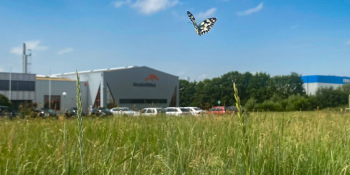
Building a sustainable future with steel: ArcelorMittal Construction and Habitat for Humanity’s eco-conscious commitment
Disclaimer - An article written by ArcelorMittal Construction. All opinions in this article reflect the views of the author(s), not Habitat for Humanity International. October 2024
ArcelorMittal Construction, as part of the ArcelorMittal Group, is the leading global provider of innovative steel building systems and solutions. We play a key role in delivering environmentally conscious buildings that benefit both people and the planet.
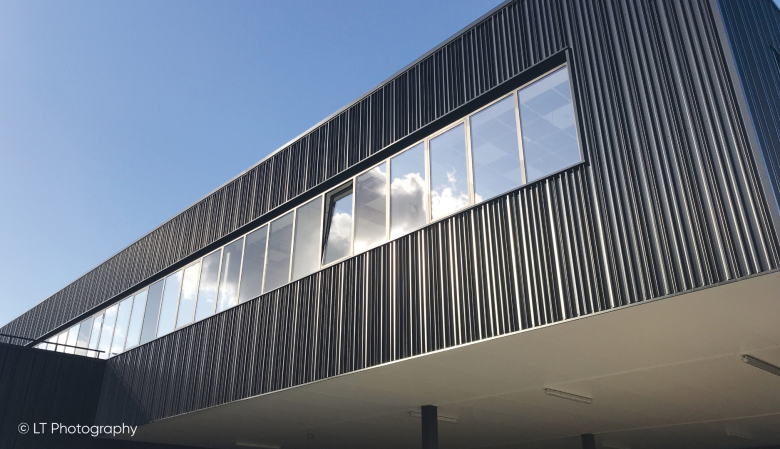
In 2023, ArcelorMittal Construction announced a 10-year partnership with Habitat for Humanity International to provide financial backing and specialised construction knowledge towards a range of projects across Europe.
By providing high-quality products that perform in extreme conditions (fire, seismic) and are thermally efficient, the partnership supports Habitat for Humanity’s goal of providing safe, affordable, and sustainable housing for all.
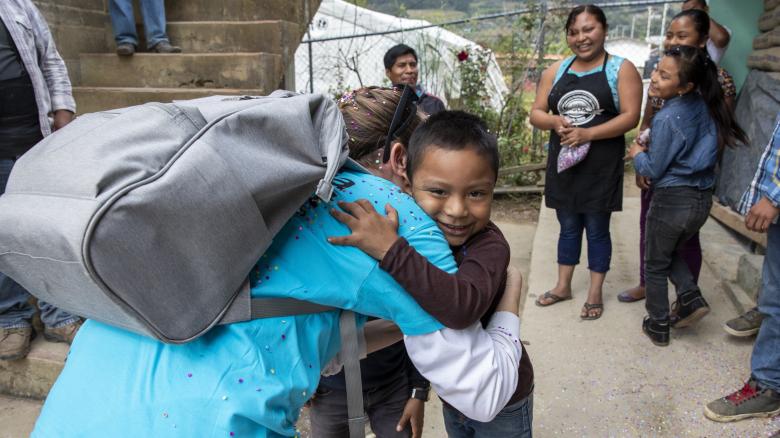
The vital role of sustainable construction materials
Today, policy initiatives such as the EU Green Deal have created an urgent call for sustainable construction practices and products. These mandates aim to drastically reduce carbon emissions, minimise resource consumption and ultimately achieve climate neutrality across Europe by 2050.
Given that construction currently contributes to around 40% of global CO2 emissions, it’s crucial that efforts begin immediately. While plans are in place to reduce this figure by 55% by 2030, sustainability efforts must be prioritised to ensure the industry remains on course.
This starts with selecting durable, recyclable construction materials with low embodied carbon – and steel stands out as the optimal choice.
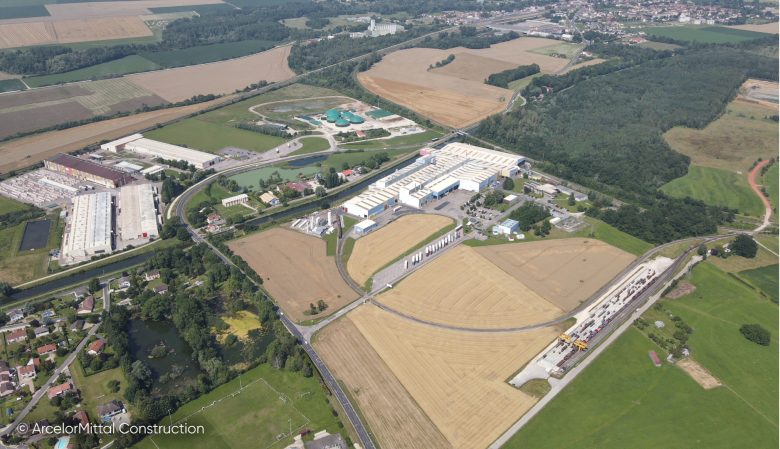
Exploring the benefits of steel
Steel is renowned for its high strength-to-weight ratio and durability, making it the ideal construction material for robust, long-lasting structures. Its resistance to extreme weather conditions, pests and fire reduces overall maintenance costs and environmental impact, offering both economic and ecological benefits. In addition, with 100% recyclability, steel can be continuously recycled without any quality loss.
At ArcelorMittal Construction, we’re proud to be the industry’s leading provider of low carbon emission steel solutions. For example, XCarb® recycled and renewably produced steel is manufactured in electric arc furnaces powered by 100% renewable electricity. Made of at least 75% scrap, XCarb® recycled and renewably produced steel reduces the carbon footprint by approximately 70% compared to traditional steel. This achievement underscores ArcelorMittal’s commitment to sustainability initiatives and green innovation projects, aligning with our broader goal to achieve net zero by 2050.
Since 2015, ArcelorMittal have been a key stakeholder in ResponsibleSteel™, a not-for-profit organisation dedicated to developing sustainable performance standards across the steel value chain. Working with over 40 members and associates globally, ResponsibleSteel™ ensures the responsible sourcing, production and recycling of steel.
Moreover, our Contrisson coil coating plant has recently been awarded the ResponsibleSteel™ certification, underscoring our commitment to sustainable practices.
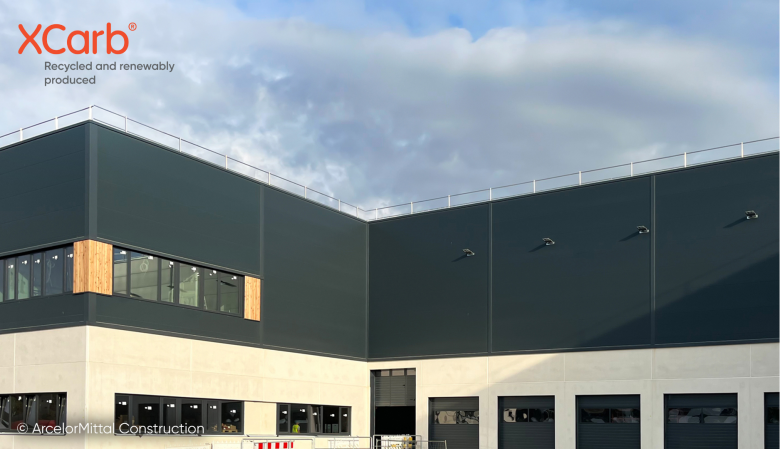
By harnessing steel’s potential, we’re contributing to the global effort to reduce the environmental impact of the construction industry. Our partnership with Habitat for Humanity allows us to extend these sustainable practices to communities in need, ensuring that environmentally friendly, durable housing solutions are accessible to all.
Opportunity Centre Valaská: Global vision, local impact
The Opportunity Centre Valaská was founded in 1999 to support socially disadvantaged groups in Valaská, Slovakia – a region struggling with economic decline and limited job opportunities. Backed by Habitat for Humanity, the centre provides crucial work to uplift vulnerable communities in the area, offering education, employment and social services.

Opportunity Centre Valaska: All three buildings that are part of the complex
In March 2024, ArcelorMittal Construction supported the renovation of the building by donating our trapezoidal steel profiles, Trapeza®, for use in its new roof. Offering enhanced durability, safety and functionality, the materials allowed the centre to continue its mission of providing essential local services.
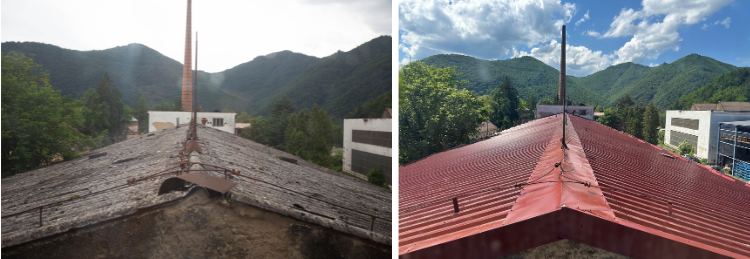
Opportunity Centre Valaska: The roof before and after reconstruction
Ultimately, the renovation strengthened community engagement with the project, kickstarting further expansion to meet the centre’s evolving needs. Once completed, the hope is that the centre will be able to provide a safer, more supportive and ultimately more effective space for everyone in the community to enjoy and benefit from.
Building towards a more sustainable future
Durable, recyclable and with technologies already available to lower its carbon footprint, steel is the optimal material for creating innovative, performant and sustainable construction solutions. Its strength and longevity make it an ideal choice for crafting resilient structures that support both environmental sustainability and long-term functionality.
Our partnership with Habitat for Humanity exemplifies how collaboration can drive meaningful progress towards a more sustainable future. Habitat for Humanity’s goal to uplift communities, paired with ArcelorMittal Construction’s commitment to reducing greenhouse gas emissions, promoting a circular economy and fostering social responsibility through our Caring Communities initiative, creates an unstoppable force for positive change. This partnership highlights the impact of shared environmental and social goals.
Looking ahead, the future of sustainable construction is bright. The Opportunity Centre Valaská Project, among many others still in the making, sets a powerful precedent for how combining expertise and resources can address both ecological challenges and community needs. Through joint efforts, we can create a greener, more equitable world for everyone – and we look forward to our collaboration with Habitat for Humanity and many more successful projects to come.
Read more news and updates from Habitat for Humanity Europe and Middle East.